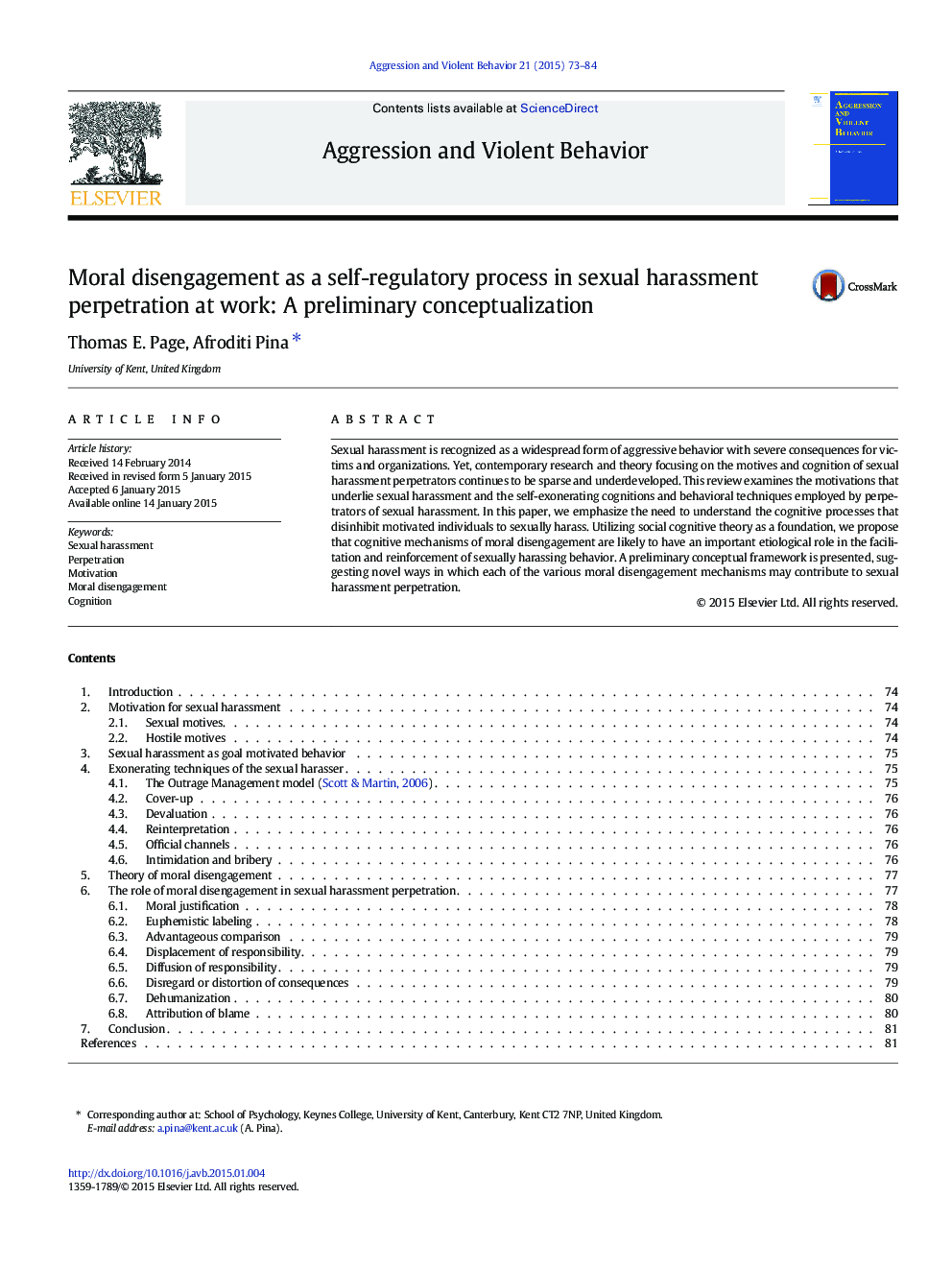| Article ID | Journal | Published Year | Pages | File Type |
|---|---|---|---|---|
| 6550341 | Aggression and Violent Behavior | 2015 | 12 Pages |
Abstract
Sexual harassment is recognized as a widespread form of aggressive behavior with severe consequences for victims and organizations. Yet, contemporary research and theory focusing on the motives and cognition of sexual harassment perpetrators continues to be sparse and underdeveloped. This review examines the motivations that underlie sexual harassment and the self-exonerating cognitions and behavioral techniques employed by perpetrators of sexual harassment. In this paper, we emphasize the need to understand the cognitive processes that disinhibit motivated individuals to sexually harass. Utilizing social cognitive theory as a foundation, we propose that cognitive mechanisms of moral disengagement are likely to have an important etiological role in the facilitation and reinforcement of sexually harassing behavior. A preliminary conceptual framework is presented, suggesting novel ways in which each of the various moral disengagement mechanisms may contribute to sexual harassment perpetration.
Related Topics
Health Sciences
Medicine and Dentistry
Forensic Medicine
Authors
Thomas E. Page, Afroditi Pina,
